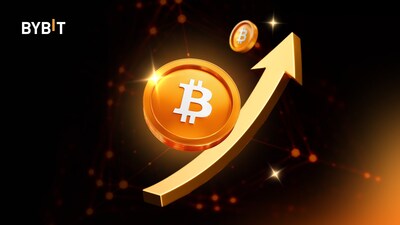WUSD Now Accepted at Iconic Metro Department Store Through dtcpay Integration
SINGAPORE, Feb. 27, 2025 /CNW/ — Worldwide Stablecoin Payment Network (WSPN) is pleased to announce that its flagship stablecoin, WUSD, is now accepted at Metro Department Store through dtcpay’s innovative payment solution. This development marks a significant milestone in bringing stablecoin technology to mainstream retail, as shoppers at one of Singapore’s most iconic department stores can now use WUSD for their everyday purchases.
The integration follows dtcpay’s recently announced partnership with Metro Department Store, which enables customers to pay with popular stablecoins including USDT, USDC, and WUSD. This expansion in WUSD acceptance demonstrates the growing utility of Stablecoin 2.0 in real-world retail environments, positioning WUSD among the select digital assets available for Metro shoppers from day one.
“We’re thrilled to see WUSD becoming available to the public at Metro Department Store through our partnership with dtcpay,” said Raymond Yuan, Founder & CEO of WSPN. “This represents exactly the kind of practical, everyday utility that Stablecoin 2.0 was designed to deliver. As more consumers experience the convenience and stability of using WUSD for retail purchases, we expect to see accelerated adoption across the broader market.”
Metro customers can now enjoy the benefits of using WUSD for their shopping needs, including the stability and security that comes with a digital asset pegged 1:1 to the US dollar. The integration allows shoppers to pay directly with WUSD at checkout, creating a seamless experience that makes digital assets more accessible and practical for everyday use.
This development builds upon the strategic partnership between WSPN and dtcpay announced in October 2024, which established WUSD as a key digital payment option within dtcpay’s expanding merchant network. The addition of Metro Department Store to this network represents a significant step forward in mainstream retail adoption of stablecoin technology, with WUSD being at the forefront of this innovation.
About WSPN
WSPN is a leading provider of next-generation stablecoin infrastructure, committed to building a more secure, efficient, and transparent payment solution for the global economy. Their flagship product, WUSD stablecoin, is pegged 1:1 to the U.S. Dollar and aims to optimize secure digital payments for Web3 users. WSPN’s Stablecoin 2.0 approach prioritizes user-centricity, community governance, and accessibility, paving the way for widespread stablecoin adoption.
Learn more: www.wspn.io | X | LinkedIn
About dtcpay
dtcpay is a regulated Major Payment Institution (MPI) licensed by the Monetary Authority of Singapore (MAS) to conduct Digital Payment Token (DPT) services and other payment services under the Payment Services Act (PSA). As a leading provider of digital payment solutions, we pioneer the integration of stablecoin acceptance into traditional financial systems. With a vision to make global transactions seamless and sustainable, dtcpay empowers individuals and businesses to embrace the future of payments.
Learn more at dtcpay.com.
About Metro
Metro is one of Singapore’s most iconic & beloved department stores, offering a wide range of products across fashion, beauty, home essentials, and more. With a legacy of trust and quality, Metro continues to innovate to meet the evolving needs of its customers.
![]() View original content to download multimedia:https://www.prnewswire.com/news-releases/wusd-now-accepted-at-iconic-metro-department-store-through-dtcpay-integration-302388172.html
View original content to download multimedia:https://www.prnewswire.com/news-releases/wusd-now-accepted-at-iconic-metro-department-store-through-dtcpay-integration-302388172.html
SOURCE WSPN

Featured Image: depositphotos @ slabko sereda






